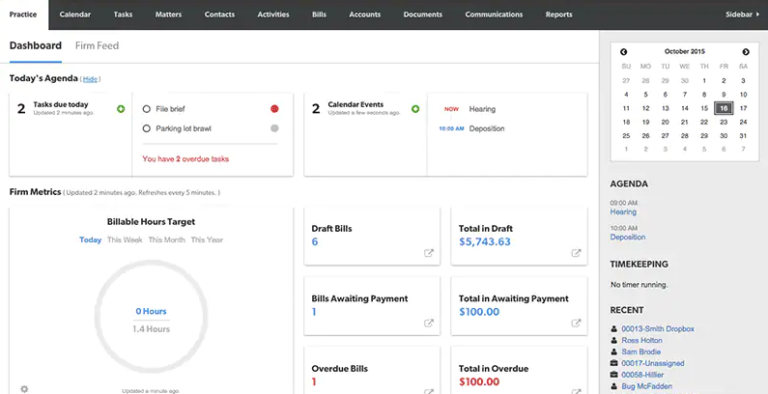Top & Best Life insurance Review 2022 – How to Select Ultimate Buyer’s Guide
Life insurance: how to choose the best one for you in 2022
are increasingly concerned with the future and quality of life. Therefore, ensuring that your family, and even you, is financially protected is one of the concerns that affects everyone. It is precisely to minimize this concern that life insurance exists.
The term can be frightening, both for what it predicts and for the value. But the fact is that life insurance is a contract that offers options to ensure financial security and stability not only in cases of death, but also in other circumstances.
In addition, the idea that life insurance is too expensive is not true. And it is about these and other issues that we will address in this article. Here you will understand why you should have life insurance and how to choose the best one for you and your family.
First, the most important
- Life insurance provides financial protection for your family members or people who depend on you, in the event of your absence.
- In addition to guaranteeing compensation in the event of death, life insurance can also include other benefits and assistance, such as in the case of disability or serious illness.
- There are several insurers that offer different types of life insurance and it is important to know how to choose the ideal one according to your condition and need.
You may also like:
- Health plan: How to choose yours in 2022
- Home insurance: How to choose yours in 2022
The best life insurance: an option for every situation
If you are interested in life insurance, you are certainly looking for the guarantee that you are signing a trust contract and that offers plans that meet your expectations. Therefore, we have selected for you the best life insurance available on the market today. Look:
- The most practical and simple option
- The best family life insurance
- Life insurance with more coverage
Hiring Guide: What you need to know about life insurance
Although are concerned about the future, the fact is not a country that has a tradition in contracting life insurance, as it happens, for example, with health or car insurance.
A survey by the University of Oxford in 2017 revealed that only 19% life insurance, while the average in 11 other countries was 32% ( 1 ) .
According to the Superintendence of Private Insurance (Susep), an organ linked to the Ministry of Economy and responsible for the control and inspection of the insurance, open private pension, capitalization and reinsurance markets, the life insurance sector showed a growth of 10% in 2018, compared to the previous year.
But there are still many doubts regarding this type of insurance. Therefore, we have created this Hiring Guide. Here you will understand the importance of life insurance, how it works and what you should take into account before closing the contract.
What is life insurance and how does it work?
Life insurance is a contract, called a policy, which aims to guarantee the beneficiaries an indemnity, mainly, but not exclusively, in the event of the death of the insured.
Nowadays, there are different types of life insurance. In general, what differentiates one plan from the other is the type and amount of coverage and assistance included.
Common to all of them is coverage for natural death and accidents. But there are other situations in which the insured and his dependents can also benefit from the life insurance indemnity. This will depend on the type of plan you choose.
For example, if you die, have a serious illness or even become disabled, insurance will ensure that you and / or your family can handle the extra expenses and are able to recover financially.
Life insurance works like this: You pay a monthly or annual fee and, in the event of death or other circumstances provided for in the contract, your family members or whoever you designate as the beneficiary, will receive the amount of money that was established in the contract.
In addition, when hiring life insurance, you choose the conditions and the amount of compensation that will be paid, as well as who will be the people to receive it.
Thus, the rights and obligations of the insured and the insurer will be included in the life insurance policy, in addition to data such as the amount of the indemnity, the types of coverage and assistance, the monthly fees and the names of the beneficiaries.
What does life insurance include?
As we have seen, life insurance will always include coverage in the event of a natural death and an accident. But, depending on the insurer and the plan chosen, you may find different types of life insurance.
This is possible because life insurance is part of the insurance of people who, in turn, have several other coverages. This means that your life insurance may have additional guarantees.
For you to get a general idea about the coverages that can be included in the life insurance policy, check out some of the main ones in the table below:
It is worth mentioning that these are just a few examples of complementary coverage and life insurance guarantees. The fact is that each insurer stipulates what guarantees each coverage.
In addition, most insurers also offer assistance options, which can be included in the life insurance policy. Check out examples of the most common assists:
- Funeral Assistance: The service is paid for and organized by the insurance company.
- Nutritional Assistance: Guidance from a specialist.
- Pharmacy Assistance: High discounts or free medication.
- Educational Assistance: With school, transport or school supplies.
- Residential Assistance: Cleaning the water tank, installing a peephole, checking for leaks, among other services.
Who should take out life insurance?
Here the answer is simple and direct: Everyone must take out life insurance. But then you can ask yourself if life insurance is not a plan focused on those who have family and dependents.
In fact, if you have a family or other people who are financially dependent on you, choosing life insurance is even more important.
After all, with the amount of the indemnity, depending on the type of life insurance you take out, your beneficiaries will not only be able to pay for unexpected extra expenses but also be able to restructure financially with more tranquility.
But it is important to note that life insurance can also benefit the policyholder itself. That is, even if you are single and have no dependents, life insurance is a plan that can save you inconvenience in the future.
After all, as we have seen, if your plan includes other types of coverage and assistance, you can benefit in cases of illness and accidents that, for example, can permanently disable you.
What is the age limit for taking out life insurance?
Of course, nobody wants to think about death, accidents or disability. But the fact is that no one is free from these circumstances of life. And when something like this happens, in addition to all the emotional chaos, financial instability can come along.
Most insurers accept new life insurance for up to 60 or 65 years.
Especially because most insurers accept new life insurance for up to 60 or 65 years. That’s because the older you are, the greater the risk of death. This is also why the older you are, the more expensive life insurance will be.
Still, if you have already passed the age limit for taking out life insurance, today it is already possible to find insurance for you up to 80 years old. In this case, of course, the conditions are special and the values are higher.
Who is entitled to the deceased’s life insurance and how to receive compensation?
As we saw, when hiring life insurance you choose who will be the beneficiaries. In addition, you also determine in the contract the amount each will receive from the compensation amount.
If you do not specify who the beneficiaries will be, the indemnity will go to the legal heirs.
To claim a life insurance claim, the insurance beneficiary needs to contact the insurer. After the approval of data and documentation, the payment of compensation is usually made within 30 days.
Did you know that insurers cannot inform third parties whether or not a person has life insurance?
Therefore, if a family member dies and you do not know if he has taken out insurance, you can make a request to obtain this information from the Superintendence of Private Insurance (SUSEP).
How is life insurance calculated?
In calculating life insurance, insurers consider several factors, but the main ones are the profile of the insured and the types of coverage. Below we will explain the main items that influence the price of life insurance.
- Amount of indemnity: It is clear that the higher the value of the indemnity for life insurance, the higher the portion to be paid to the insurer. To find out what the ideal compensation is, assess how many people are financially dependent on you. Insurers recommend that the indemnity should cover all expenses for at least three years.
- Health Status: As we have seen, the older the insured the more expensive the life insurance will be. increases over the years. In addition, insurers also take into account your health condition, routine, habits and addictions.
- Profession: Depending on your profession, life insurance can also be more expensive and may not even be approved by the insurance company. Some professions that are generally refused are: Gold digger, delivery man, motorcycle courier, penitentiary agent, diver, automobile pilot, oil rig worker, among others. On the other hand, there are specific insurance policies for security professionals in general.
- Coverages: Depending on the type of coverage you choose to include in your life insurance policy, the cost may increase.
How much does life insurance cost and where to hire?
As we have seen, there are several items that can influence the price of life insurance. And, precisely for that reason, the values of the plans offered by the insurers vary a lot.
But still, it is possible to find life insurance whose monthly installment is R $ 5. For more complete plans the monthly fee may exceed R $ 500. Remember there are plans with monthly or annual payment.
To hire life insurance you can either look for an insurer in person or online.
Hiring criteria: factors to consider before hiring life insurance
As there are many insurers, which offer the most varied life insurance plans, you need to analyze both your needs and expectations as well as the offers.
To assist you in this process, we have listed the main points that you should take into account before taking out life insurance. Are they:
- Individual x Collective
- Type of coverage and assistance
- Compensation amounts
- Traditional or Redeemable
- Broker
Below, you can see how to analyze each of these criteria.
Individual x Collective
There are two types of life insurance: individual and collective. The collective is usually a life insurance made by the insured’s company. But, as it is collective, it takes into account the group’s standard of living.
Therefore, in this case, compensation is not always ideal. On the other hand, collective life insurance is usually cheaper. Individual life insurance, on the other hand, allows for personalization of coverage and, therefore, is more advantageous for those who want greater compensation.
Type of coverage and assistance
Before including additional coverage and assistance with your life insurance, note that many insurers offer some of them free of charge under specific plans.
That is, you can either choose personalized plans, in which you choose each coverage to be added; how you can opt for fixed plans, whose monthly fee already includes some coverage and assistance.
This analysis is important because, although most coverages are important, your choice should take into account your standard of living and that of your dependents.
For example, if you have no children or other children who are financially dependent on you, assistance that covers education or babysitting is of no use.
Compensation amounts
Some insurers offer amounts that can reach up to R $ 2 million.
Another factor that you must take into account is, certainly, the indemnity amount, which varies a lot depending on the insured chosen and also the types of coverage of your policy.
But, in general, the most common is that the indemnity values range from R $ 15 thousand to R $ 600 thousand. Still, some insurers offer amounts that can reach up to R $ 2 million.
Traditional or Redeemable
Please note that you can also choose between two types of life insurance: traditional and redeemable. Redeemable life insurance allows you to redeem part or all of the amount paid to date.
With this differential, this type of life insurance can be attractive, for example, if you want to take out insurance for only a certain period. A good example for this is the case of people who decide to take out life insurance until their children are 18 years old.
Broker
Finally, choose the broker with whom you are going to take out life insurance. It is essential that it is a company of trust and tradition in the market. For this, prefer insurers that have:
- Accreditation at Susep
- Market strength
- Expertise in the segment
- Recommendation from other policyholders
- Coverage and assistance plans that meet your expectations
abstract
Life insurance guarantees compensation in case of natural and accidental death, in addition to other circumstances depending on the chosen plan. With this, you make sure that your dependents will be covered financially in the event of a fatality.
But to hire the best life insurance, it is essential that you choose a reliable insurer, in addition to coverage and assistance that meet your needs and those of your beneficiaries. It is also essential that you read the policy carefully before signing it.
Glossary
- Premium: It is monthly or amount paid to the insurer to be entitled to life insurance.
- Indemnity: Amount paid to the insured’s benefits in the event of death, other circumstances provided for in the contract.
- Claim: Represents the occurrence of the risk covered by life insurance. Coverage: It is the type of risk that the insurer undertakes to support, such as death, accidents, serious illnesses, disability etc.
- Policy: It is the document or contract issued by the insurance company that describes the life insurance coverage and conditions.
- Validity: Period of validity of the contract guarantees.
- Permanent disability: Total or partial loss of the functional capacity of any member or part of the body.
best life insurance policy
best life insurance policy 2022 with high returns
best life insurance company
life insurance corporation
best life insurance policy for a woman
lic life insurance plans
best life insurance policy 2022
term life insurance


